A Dual BA Perspective: Arab Turath from Menton to Columbia
Dual BA Program students share their experiences engaging with Arab culture and heritage both inside and outside of the classroom in Menton and in New York.
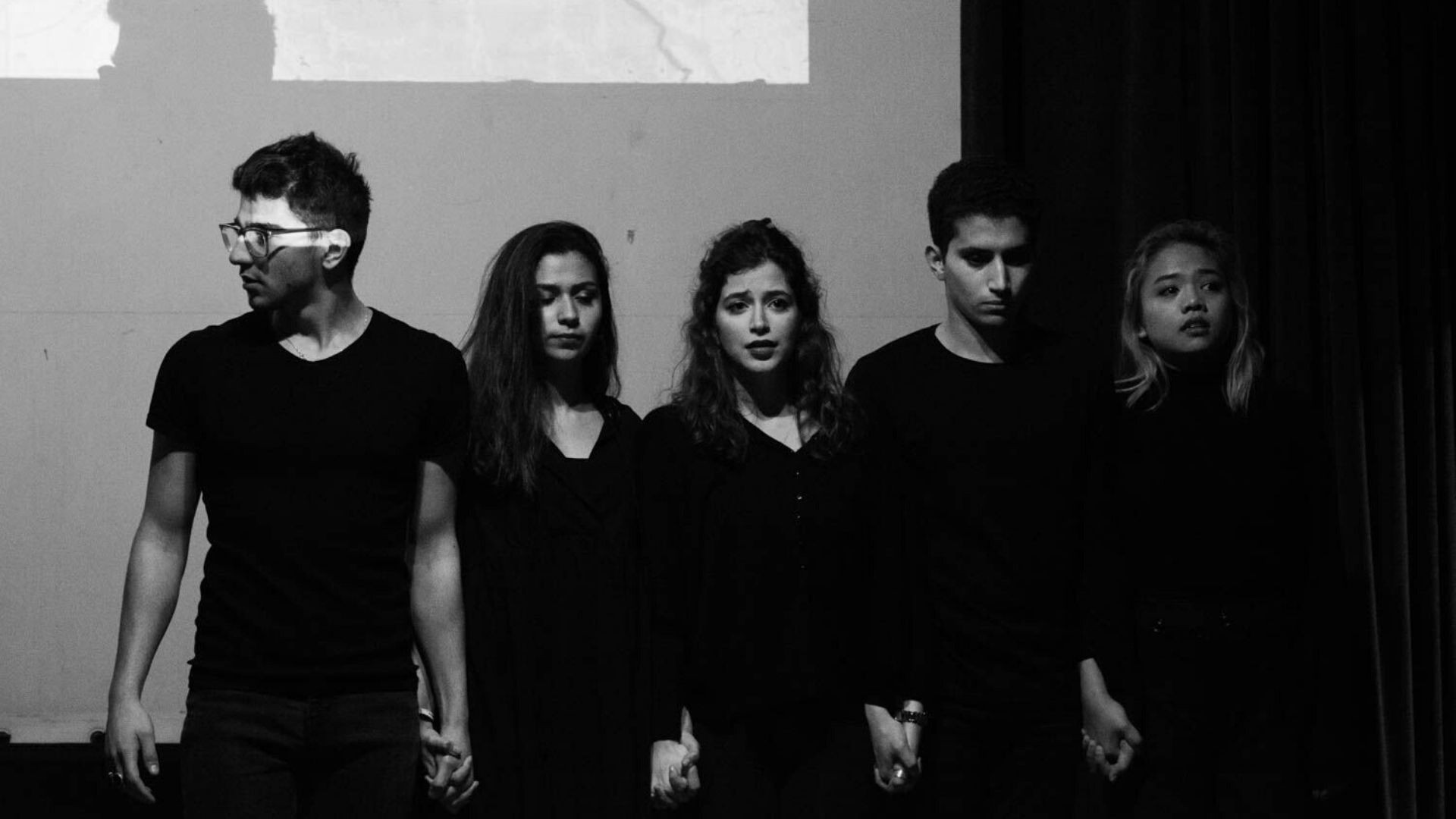
During their first two years at Sciences Po, Dual BA students at Science Po’s Menton campus focus their studies on the Middle East and Mediterranean regions. On their academic menu: some staples including Mathieu Cimino’s Introduction to Arab and Islamic Civilization, Lamiss Azab’s Arab Modern Political Thought, and Stephane Lacroix’s States and Societies in the Middle East. In celebration of the national Arab-American Heritage month, we’re excited to share the ways in which Dual BA students have been engaging with Arab culture and heritage in the program both in and outside the classroom.
Nour Aljowaily ‘23GS, an Egyptian freshman in the program, sought out the Arab Students’ Organization (ASO) with the goal of sharing an authentic and personal perspective on the Arab world with the rest of the student body. However, after joining the organization, he found himself exploring his own identity as an Arab.
“Joining ASO took me on a whirlwind of a ride: from breaking down my own misconceptions of Arab identity during the panel on the representation of self, to singing my heart out during the Arabic music night, to the endless preparation and inevitable success of the pride and joy of ASO: Tarikhna. ASO has enriched my time in Menton in ways I could not have imagined,” he said.
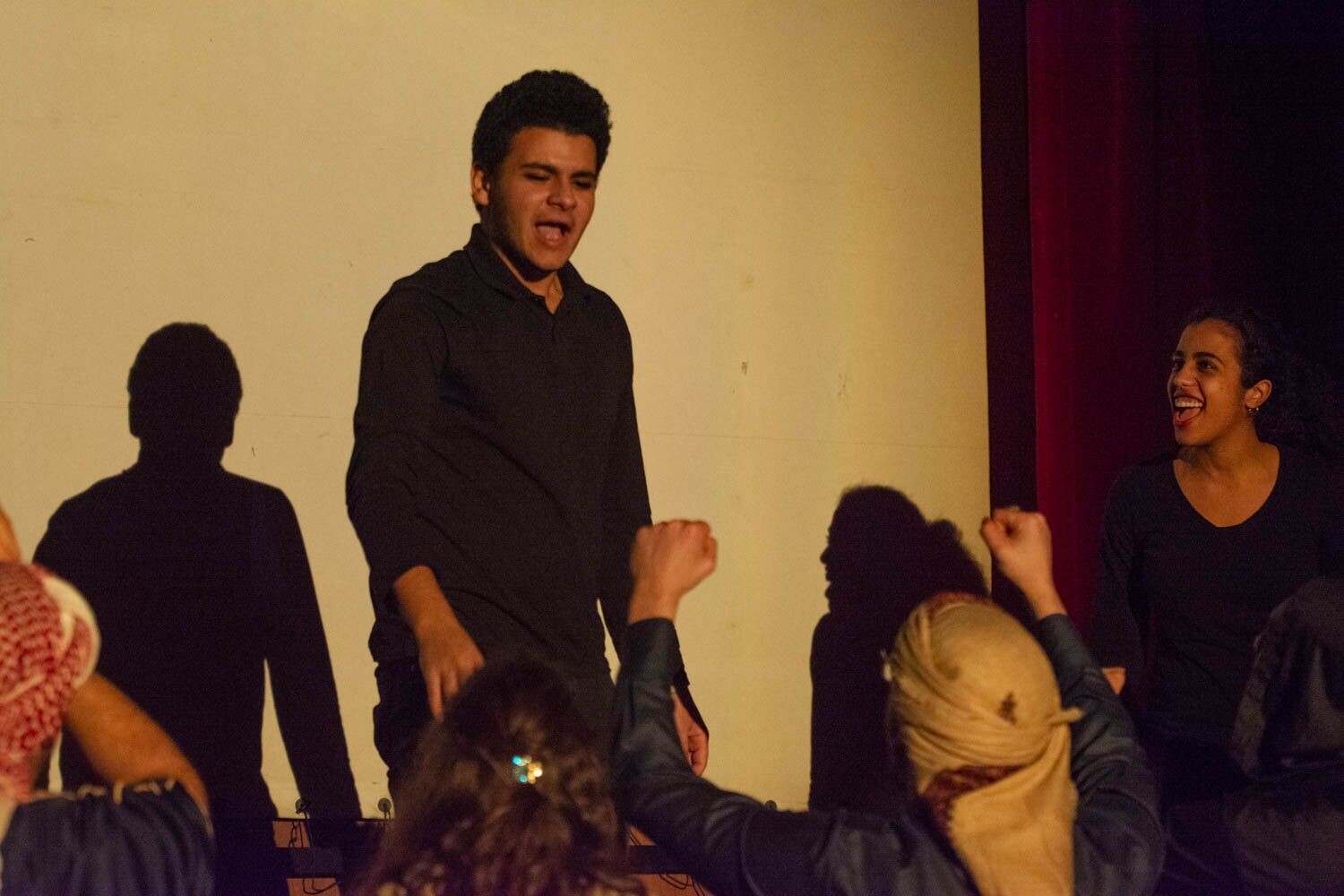
Tarikhna (Our History), one of the activities organized by the organization this year, is a performance representing the most important moments in modern Arab history. For Katherine Bibilouri ‘22GS, a dancer, working on the show allowed her to engage with history in a more personal and emotional way.
“In the show, I was chosen to play the Nahda ( the Arab Renaissance or Enlightenment) and portray this period through dance. In this scene, my movements embodied the transition from complete liberation to oppression. Capturing this message really required my cast members and I to delve outside our comfort zones - it was this experience and exchange that allowed us to really build and share the multitude of layers and emotions woven through Tarikhna to our audience,” Bibilouri said.
Having the opportunity of meeting and exchanging with students from different backgrounds is what first drove me to the Dual BA Program, but this experience still came as a surprise - a truly enriching and rewarding one.
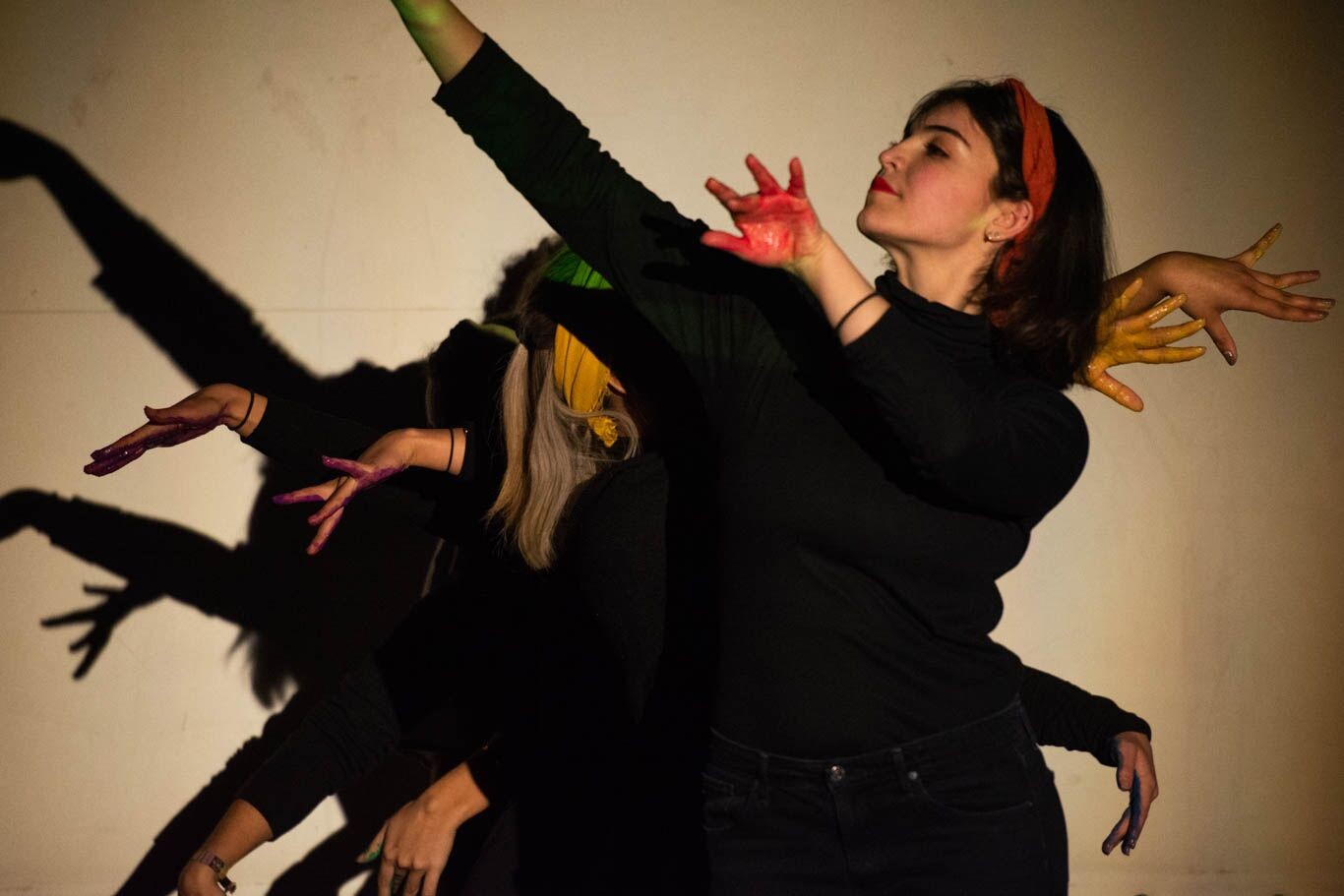
Alice Turati ‘22GS, another dancer in the program, was first introduced to ASO through her roommate. When she approached and asked her to help choreograph some segments of Tarikhna, Turati was on the fence. Putting together a performance dealing with many important events from the modern history of the Arab world felt too ambitious, especially without professional help. However, the energy and passion of the students already involved in the project convinced her to join in. As a non-arab student, Turati was glad to follow the guidance of the ASO co-president, Dalia Attalah, a Sciences Po student who’s been admitted to Barnard for her third year abroad. Atalallah, who’s from Lebanon, helped her understand the historical and individual struggles that they were trying to portray in their choreographies. Though putting the project together took countless hours of hard work, the rewards were plenty.
“In a way that I would have never expected, this student-run production allowed me to connect my past in ballet and contemporary dance to my current degree, and it gave me the honor of bringing on stage a piece of history of my fellow classmates and their respective countries. Having the opportunity of meeting and exchanging with students from different backgrounds is what first drove me to the Dual BA Program, but this experience still came as a surprise - a truly enriching and rewarding one,” Turati said.
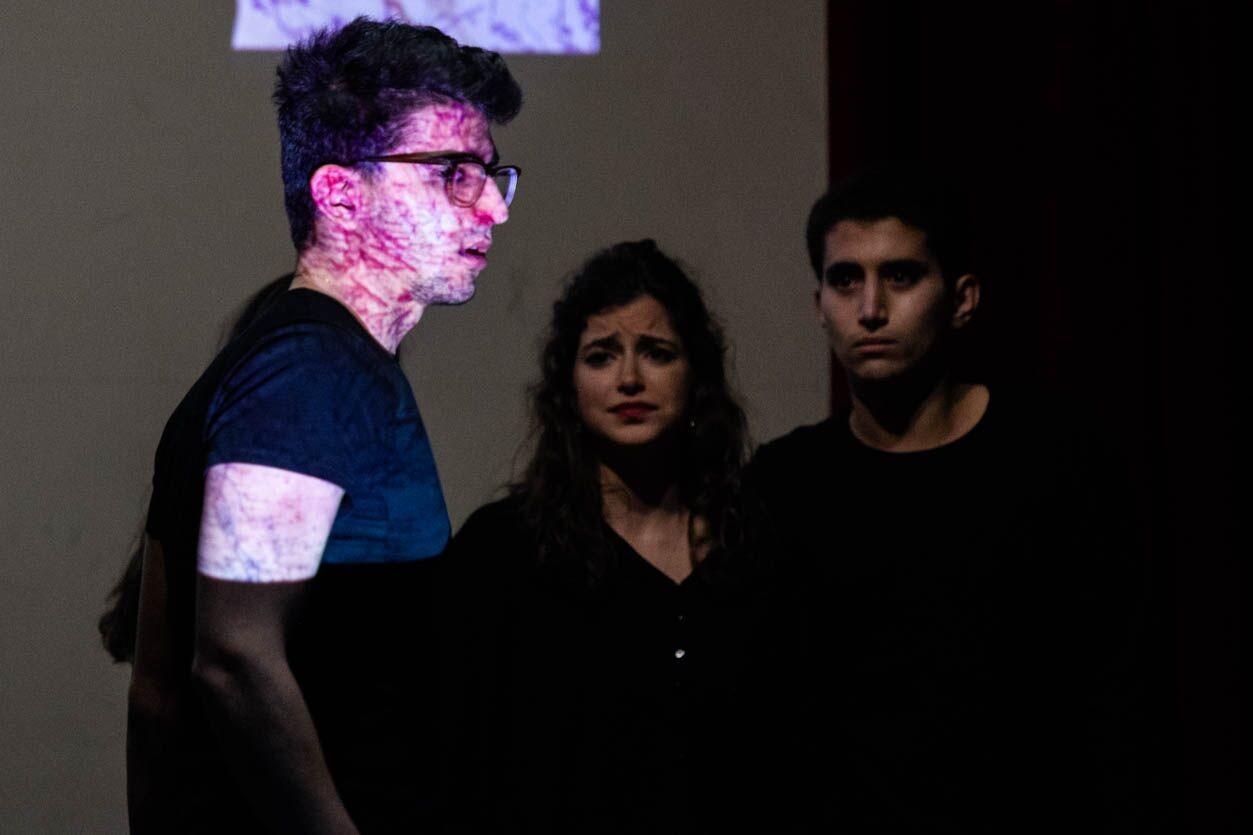
For Bibilouri, joining ASO also meant connecting both to the rest of the student body and to what they learned in class in a new way.
“Through ASO, I was able to grow closer to people in our diverse student body at Sciences Po and gain insight on a more personal perspective of Middle Eastern history. This was truly an eye-opening experience that you can’t receive in a classroom, something that makes the Dual BA as a whole a beautiful program,” said Bibilouri.
I felt close to Menton, though I was miles away. Some of the students I met that day remain some of my closest friends at Columbia. It was great to be a part of a smaller, tight-knit community within the larger Columbia community.
Caitlin Buckley ‘22, a sophomore in the program from Washington D.C., shared a similar sentiment: “The cast and crew behind Tarikhna were incredibly kind and patient. During a busy time at the end of the first semester, they all took time to rehearse in an empty theatre so we could shoot the trailer. The dedication and passion of ASO members are exceptional, and this produced great events like the panel and show and also helped the campus through Arabic tutoring sessions and even quarantine playlists! Being involved in ASO transformed what I learned in class into songs, poems, art, and stories from classmates.”
Buckley developed an interest in Central and Western Asia thanks to a few twists of fate while in high school. Eager to learn Persian and Arabic in university, in order to be able to read these literatures in their original language, Buckley decided to apply for the Dual BA Program. She was glad it would allow her to learn both the languages of the works themselves, but also the context surrounding them. Outside of the classroom, she was able to combine her passions for the histories and cultures of the Arab world with her creative skills by serving as the principal videographer and photographer for Tarikhna. Her involvement with ASO also allowed her to discover new aspects of Arab culture she hadn’t previously been exposed to.
“While making the trailer for Tarikhna, I learned how to animate text in Arabic by watching video editing tutorials on Youtube in Arabic. Additionally, my Spotify playlist grew as well with songs from the show and music I heard at ASO meetings!” she said.
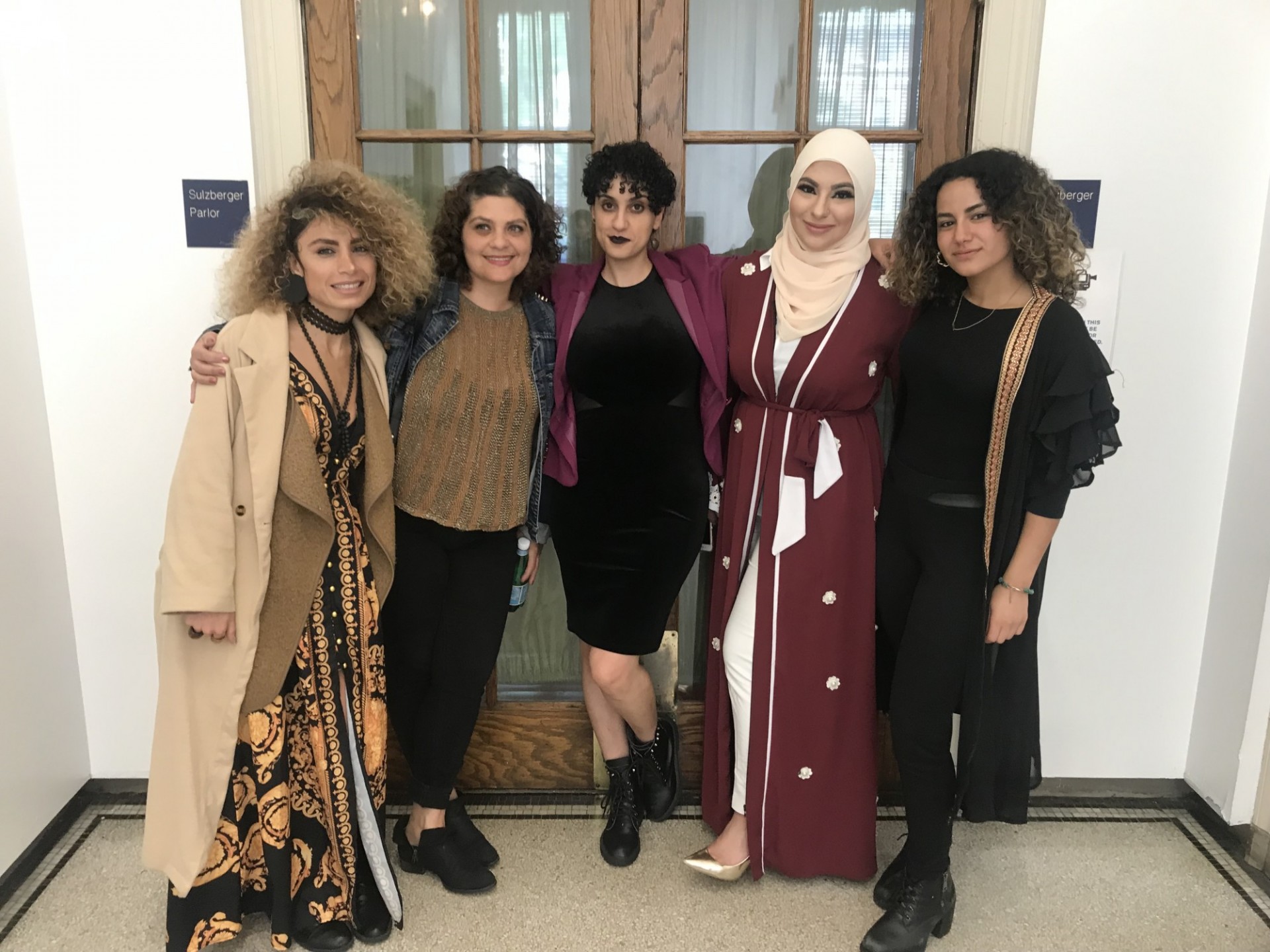
Once at Columbia, getting involved with Turath, Columbia’s Arab Students’ Association, is often a crucial step for Menton students’ smooth integration into the Morningside campus. For both Hayat Aljowaily ‘20 and Malak Gadalla ‘21, two Egyptian students in the Dual BA Program, joining Turath felt like a natural move as soon as they arrived at Columbia, which was motivated by a desire to make new friends.
“I remember going to the welcome social event organized by Turath during my first few weeks at Columbia: walking into a room filled with Arabic-speaking students dressed in belly dancing belts, the room smelling of manousheh, and a subtle soundtrack of Arabic music in the background felt magical. I felt close to Menton, though I was miles away. Some of the students I met that day remain some of my closest friends at Columbia. It was great to be a part of a smaller, tight-knit community within the larger Columbia community,” said Aljowaily.
Joining Turath also allows Dual BA students who have chosen majors without a regional focus on the Middle East at Columbia to continue staying in touch with Arab culture and current events in the region. For Aljowaily, who’s a film and media studies major, joining Turath was a way for her to still continue pursuing her interest in the Middle East and North Africa (MENA) region.
When Gadalla started in Menton, the ASO had not yet been founded. Although the Menton campus still offered her the opportunity to meet students, both of Arab and non-Arab backgrounds who were genuinely interested in the Arab world, there was no official structure through which they could foster and share their identities. This is why Gadalla was especially looking forward to joining Turath once at Columbia, especially after finding out that Edward Said, a former Columbia University professor and the author of Orientalism, had been one of its founding members. Gadalla is now an Organizing Committee Member for the club which meets weekly to plan events pertaining to Arab culture and identity.
Following in the footsteps of those who arrived at Columbia before them, the students at Menton all plan to find ways to continue learning about Arab cultural heritage once in New York. Whether it’s by getting involved with similar projects and associations, exploration through dance or performances, or through their academic paths.
Stay up to date with what Dual BA students are doing on our website, Facebook page, or following #ColumbiaDualBA on Instagram.
Menton ASO photos by Caitlin Buckley.
